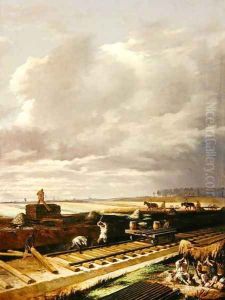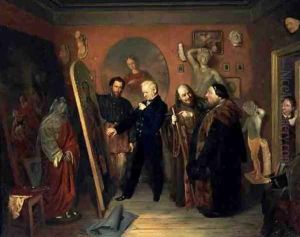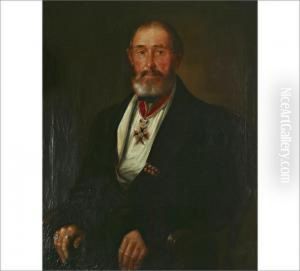Vasili Vladimirovits Pukirev Paintings
Vasili Vladimirovich Pukirev was a notable Russian painter who made a significant contribution to the art world during the 19th century. Born on January 6, 1832, in Moscow, Russia, he grew up during a period of great cultural and social change. Pukirev's interest in art began at a young age, and he eventually pursued formal education in the field.
Pukirev studied at the Moscow School of Painting, Sculpture, and Architecture, where he honed his skills under the guidance of established artists. He was particularly influenced by the Realist movement, which sought to depict the lives of ordinary people and social issues with sincerity and accuracy. Pukirev's works often reflected his commitment to Realism and his keen observation of the society around him.
One of Pukirev's most famous works is 'The Unequal Marriage,' which he completed in 1862. This painting vividly captures the social commentary of the time, portraying a young girl being married off to an older, affluent man, a practice that was common in Russian society then. The painting's critical perspective on the institution of marriage and the expression of the characters involved made it an iconic piece of social realism. It resonated with viewers and critics alike, earning Pukirev significant recognition.
Despite the success of 'The Unequal Marriage,' Pukirev struggled to maintain a consistent presence in the art world. His later works did not achieve the same level of acclaim, and he faced financial difficulties. Nevertheless, he continued to work and contribute to Russian art throughout his life.
Vasili Pukirev died on December 20, 1890, in Moscow. While he may not have enjoyed a prolific career, his work left a lasting impact on Russian art, and 'The Unequal Marriage' remains a poignant example of Realist painting from the period. Pukirev's legacy is one of a keen observer of societal norms and an artist who was not afraid to use his brush to comment on the injustices of his time.



